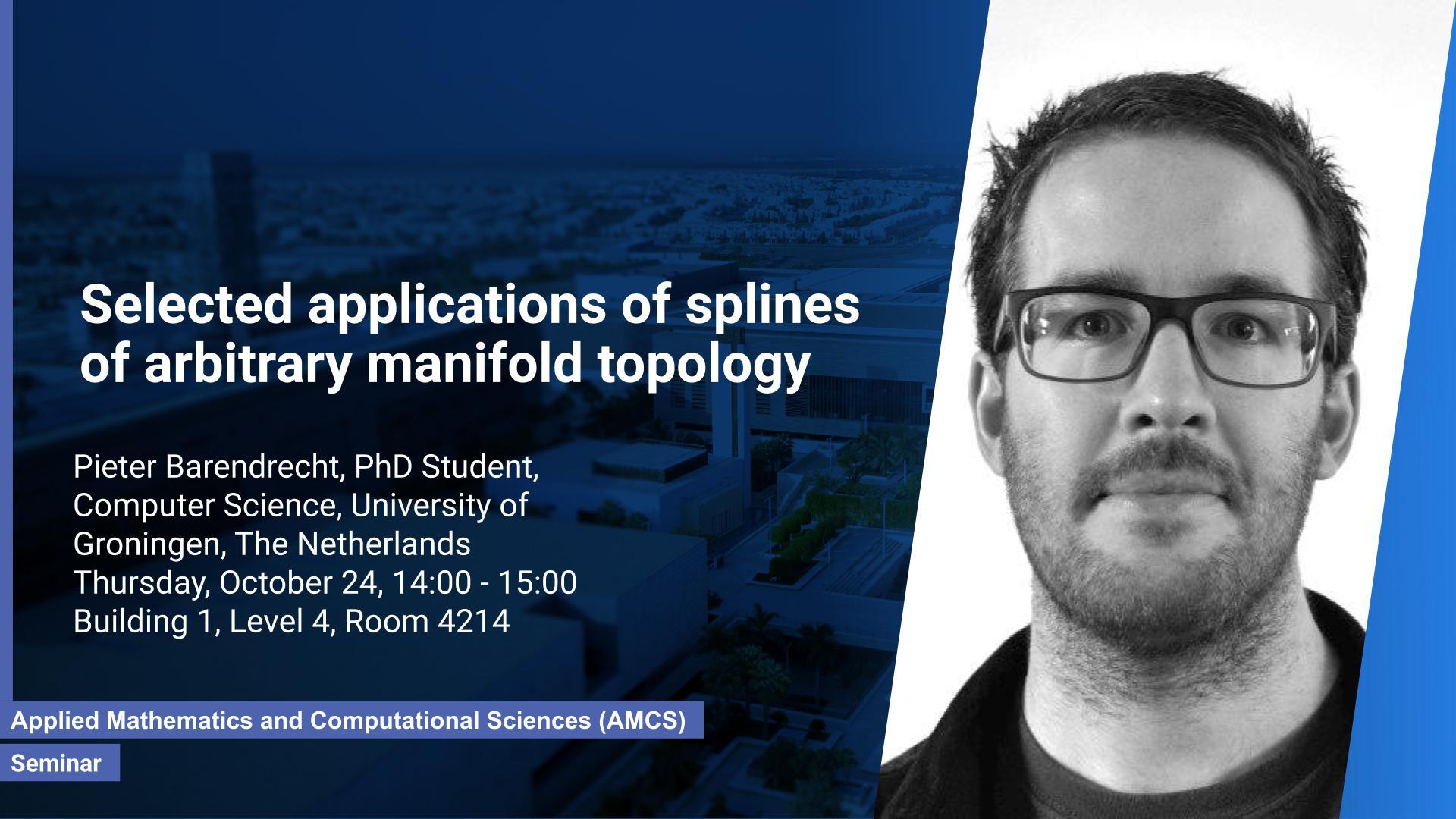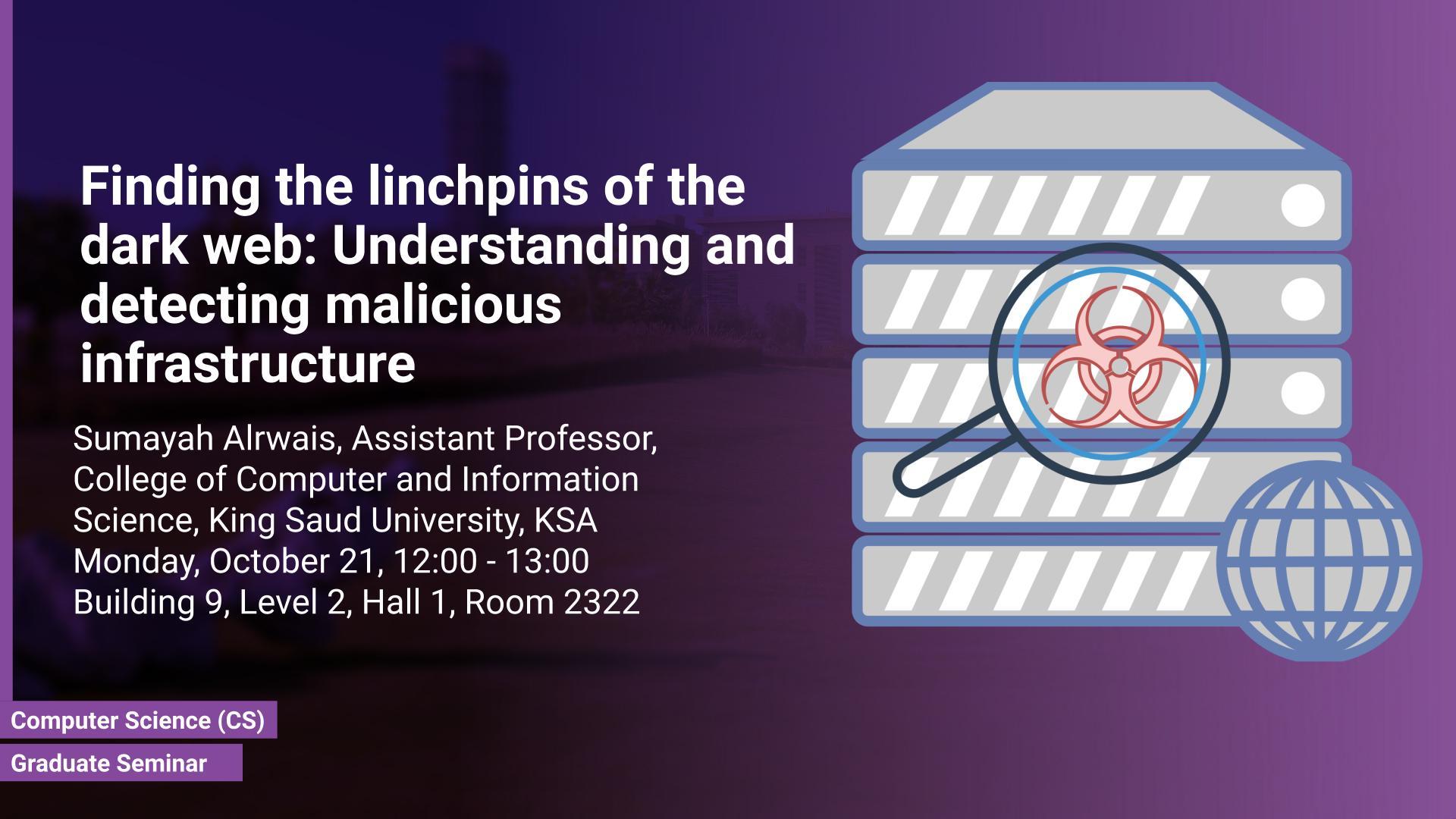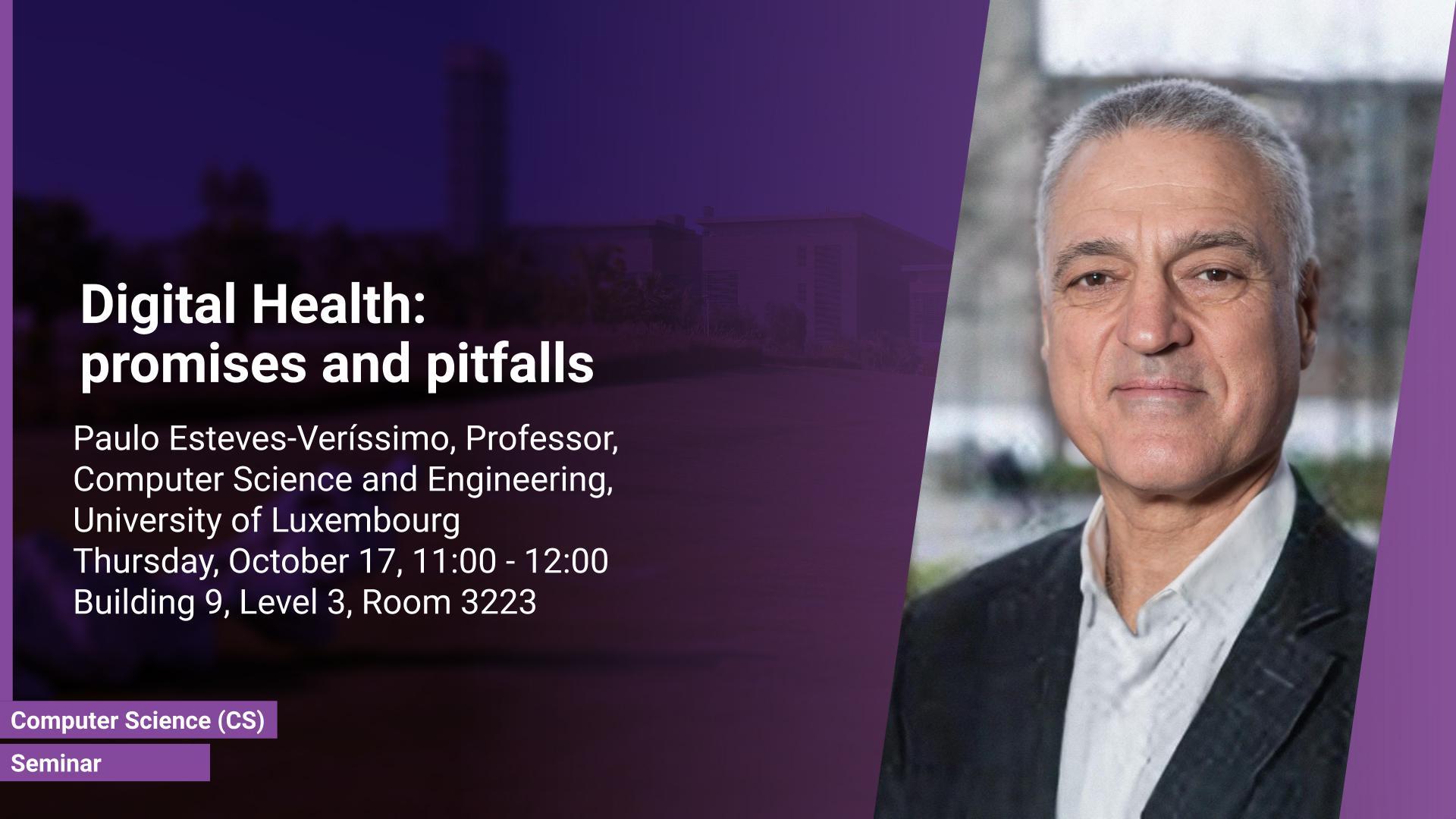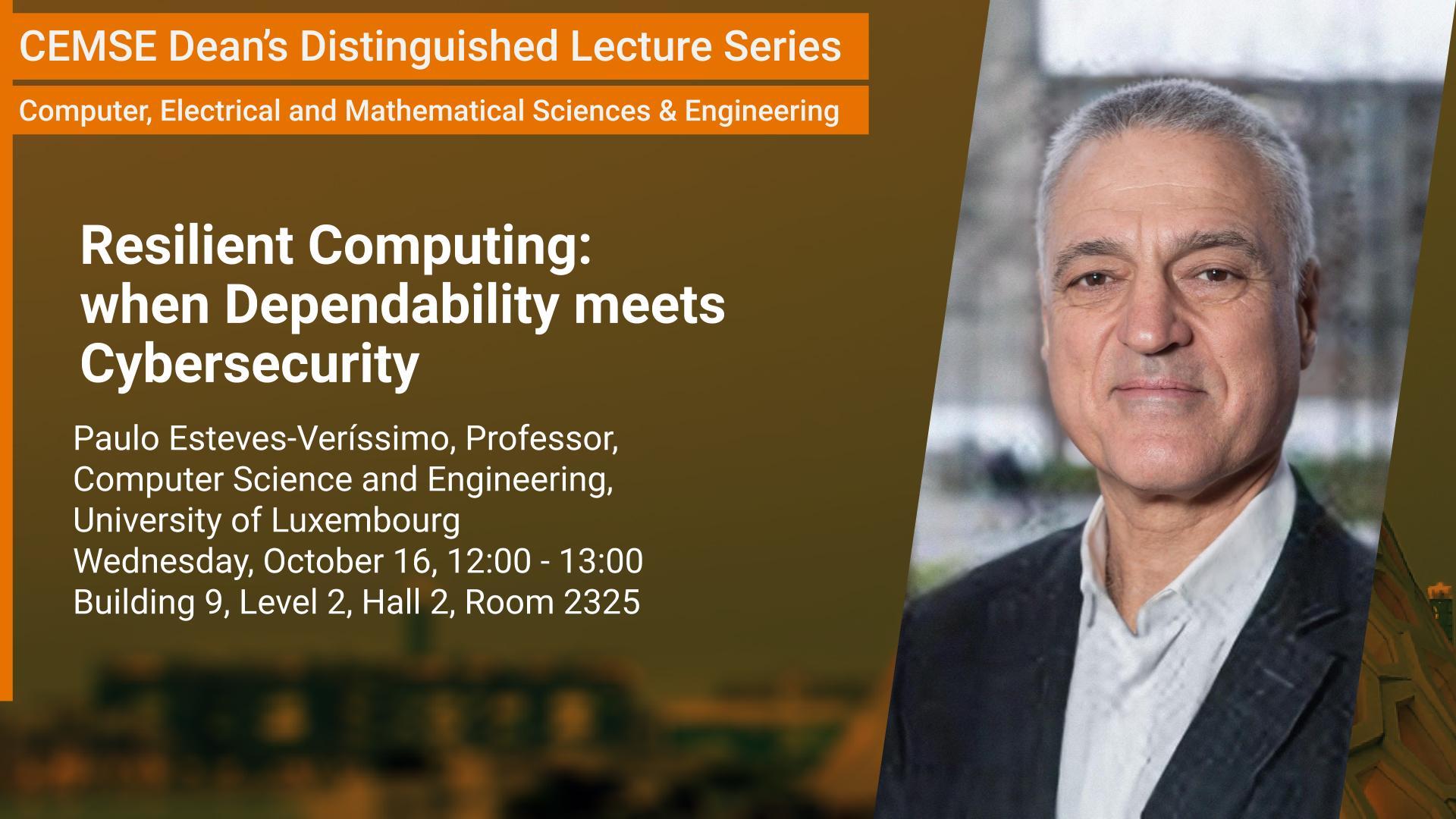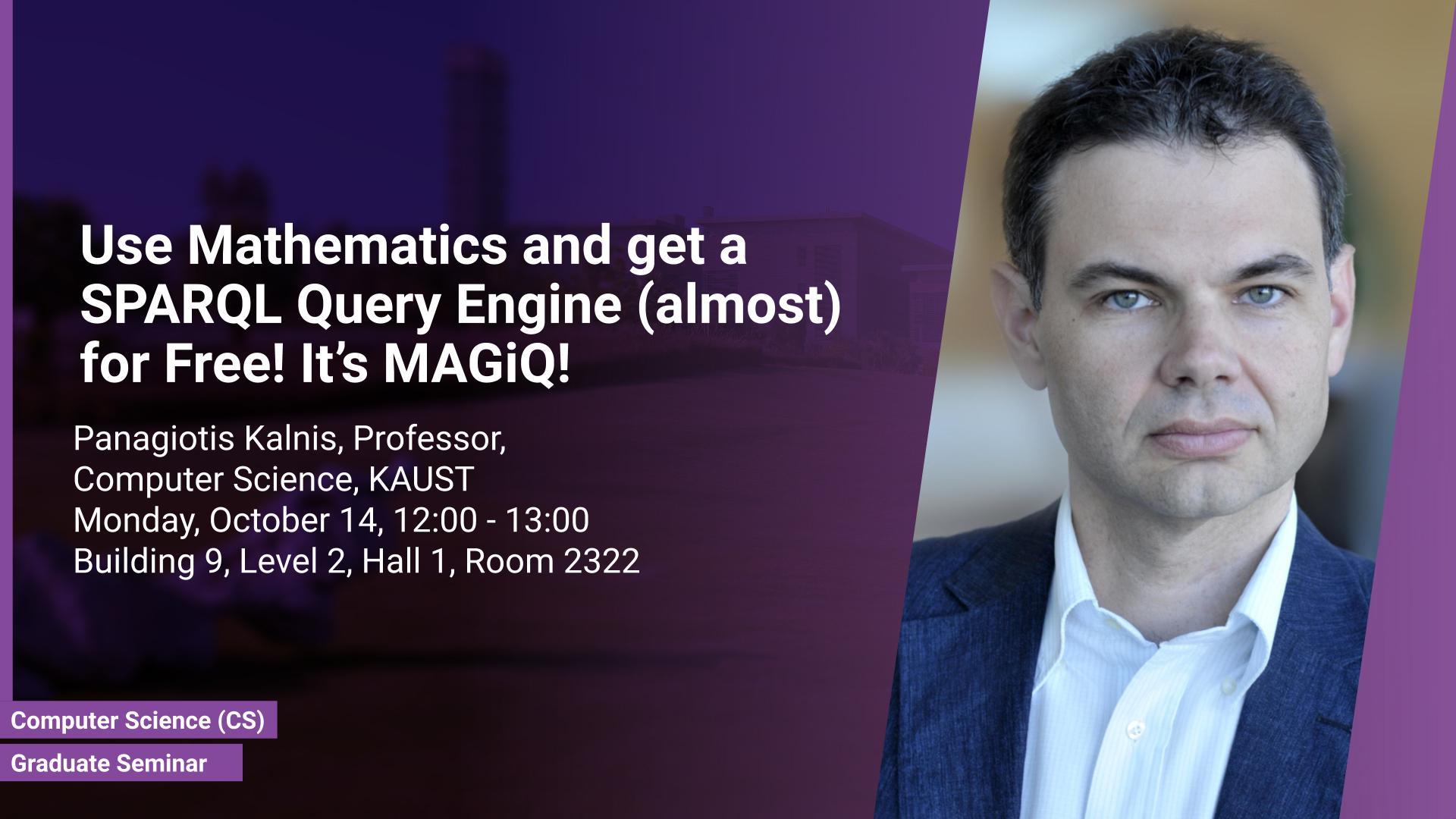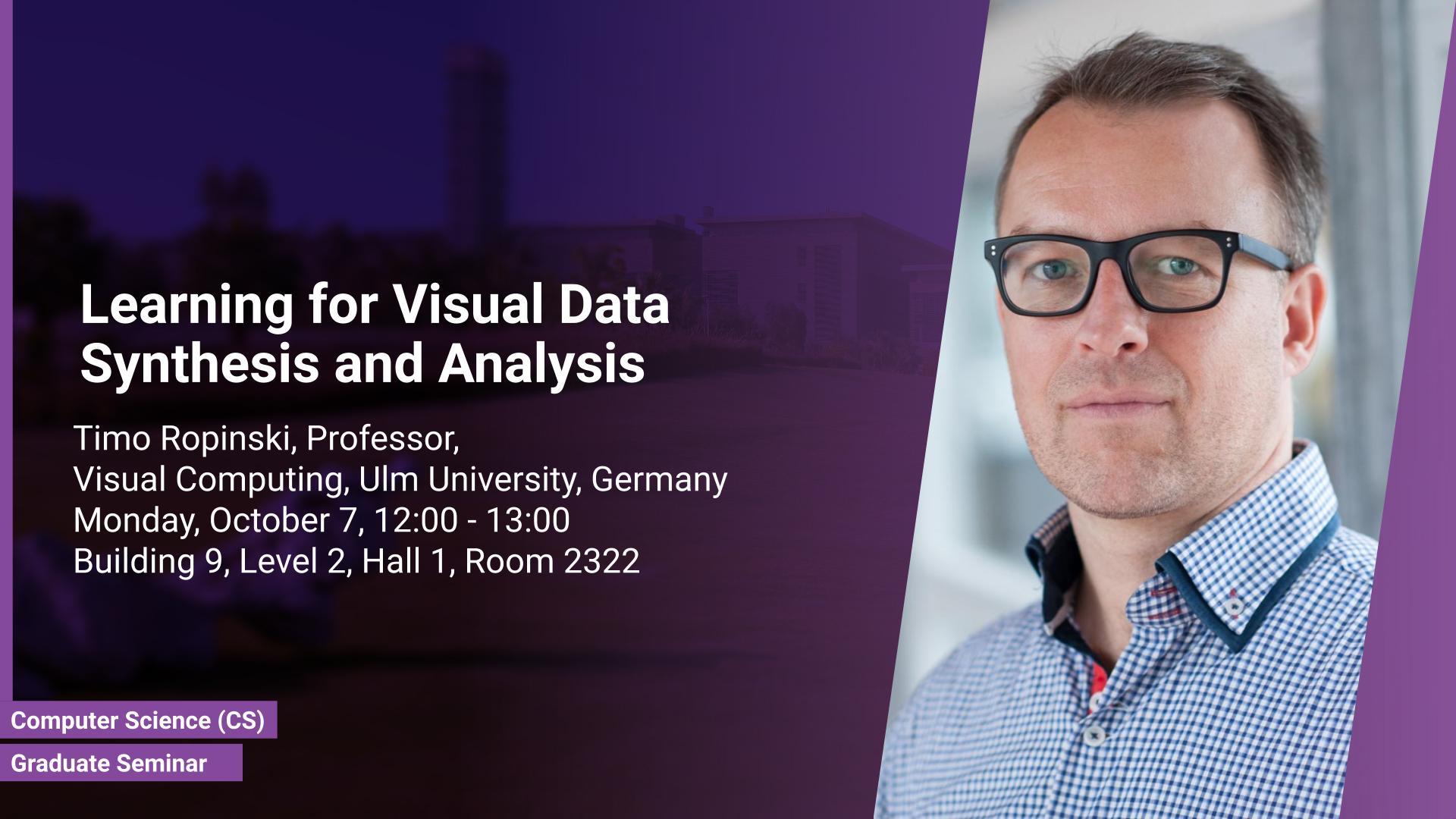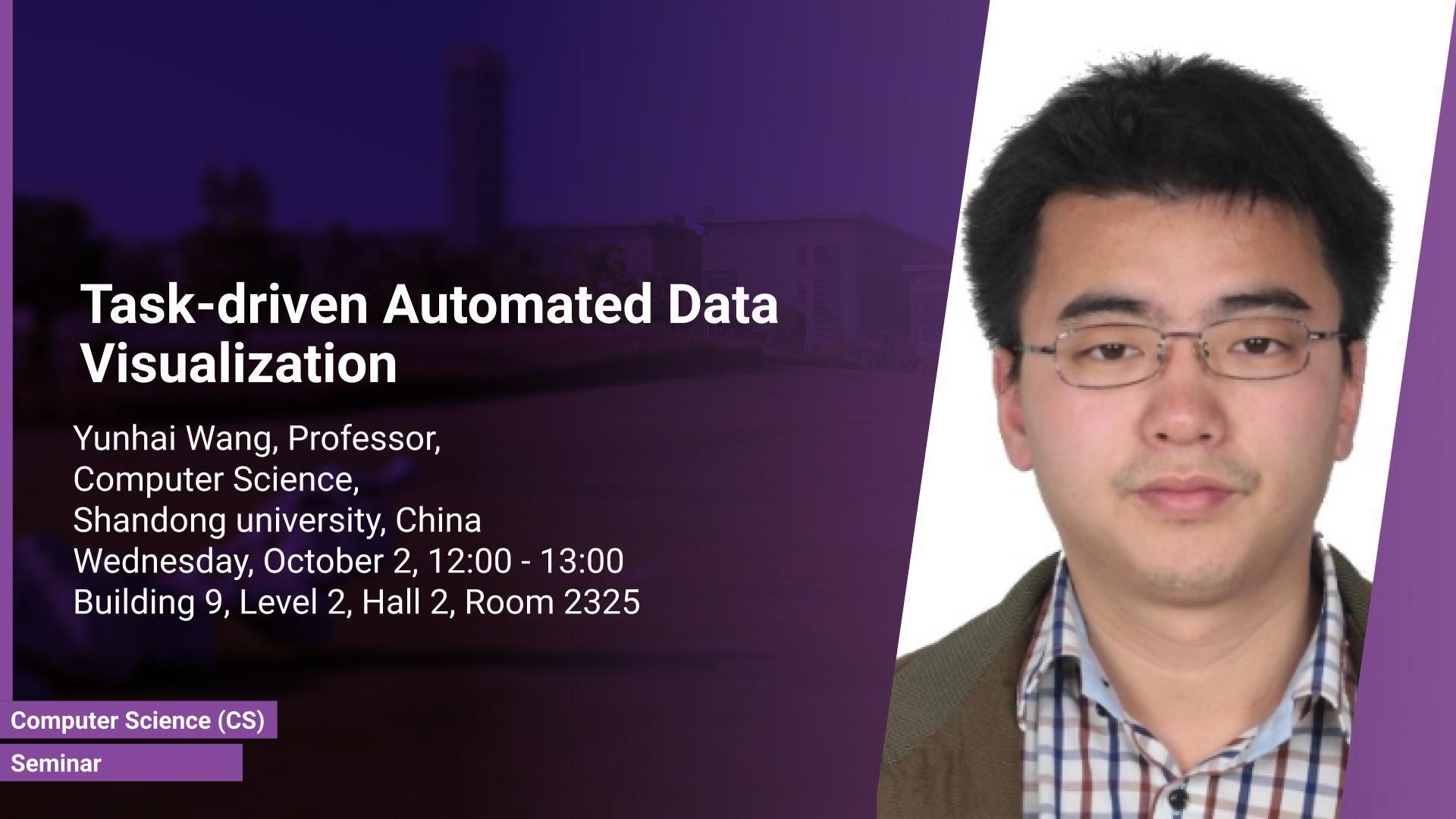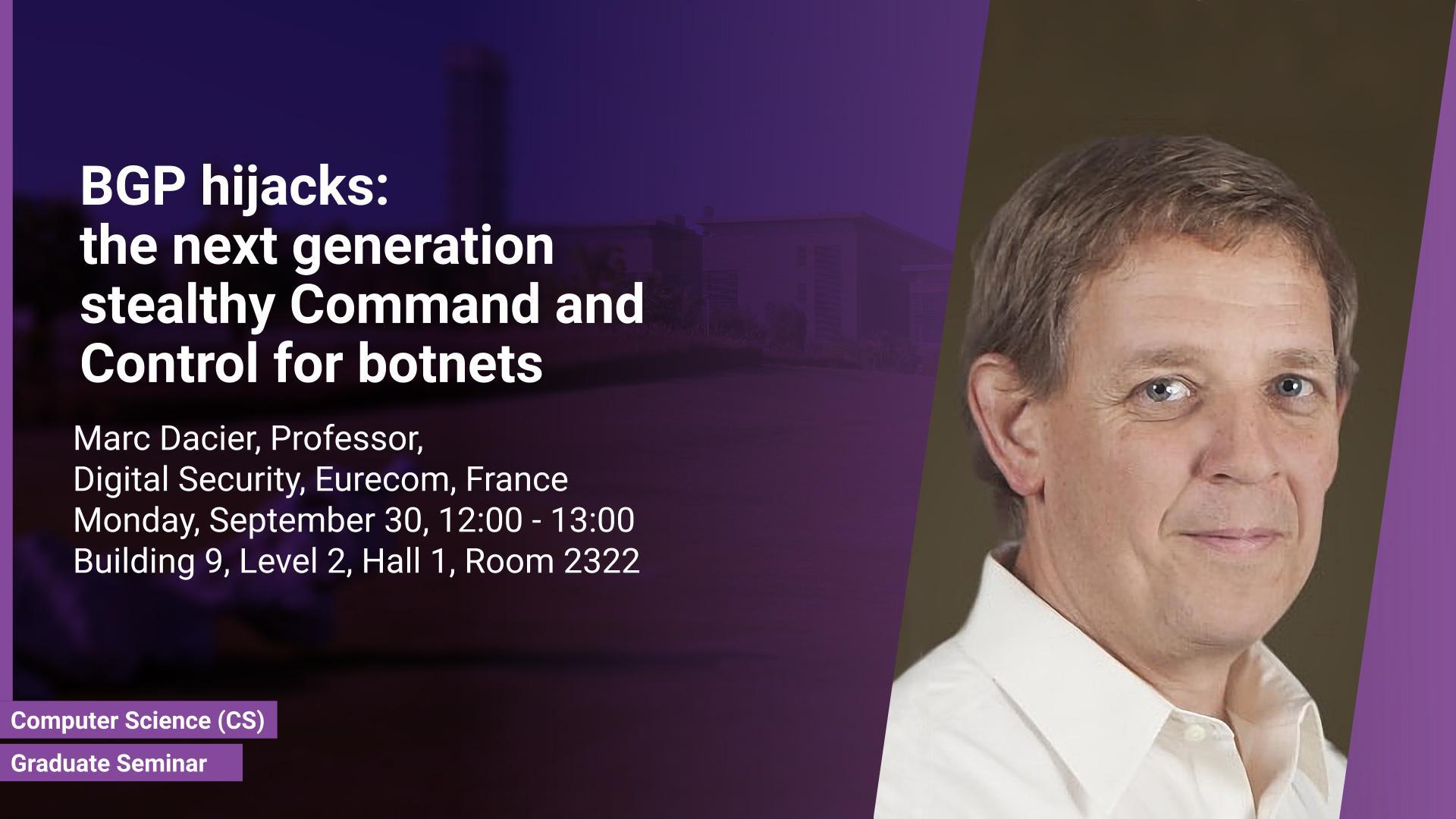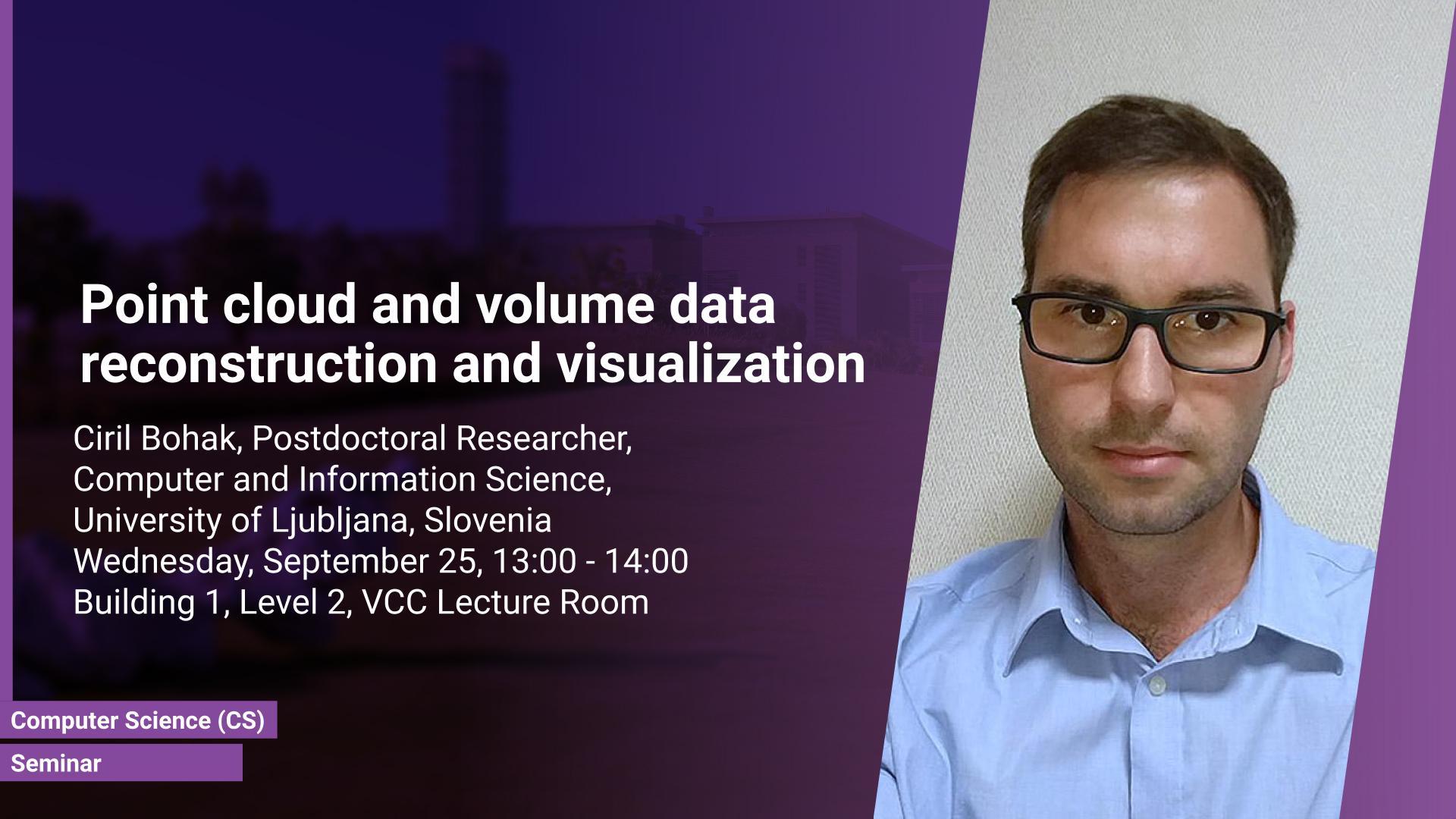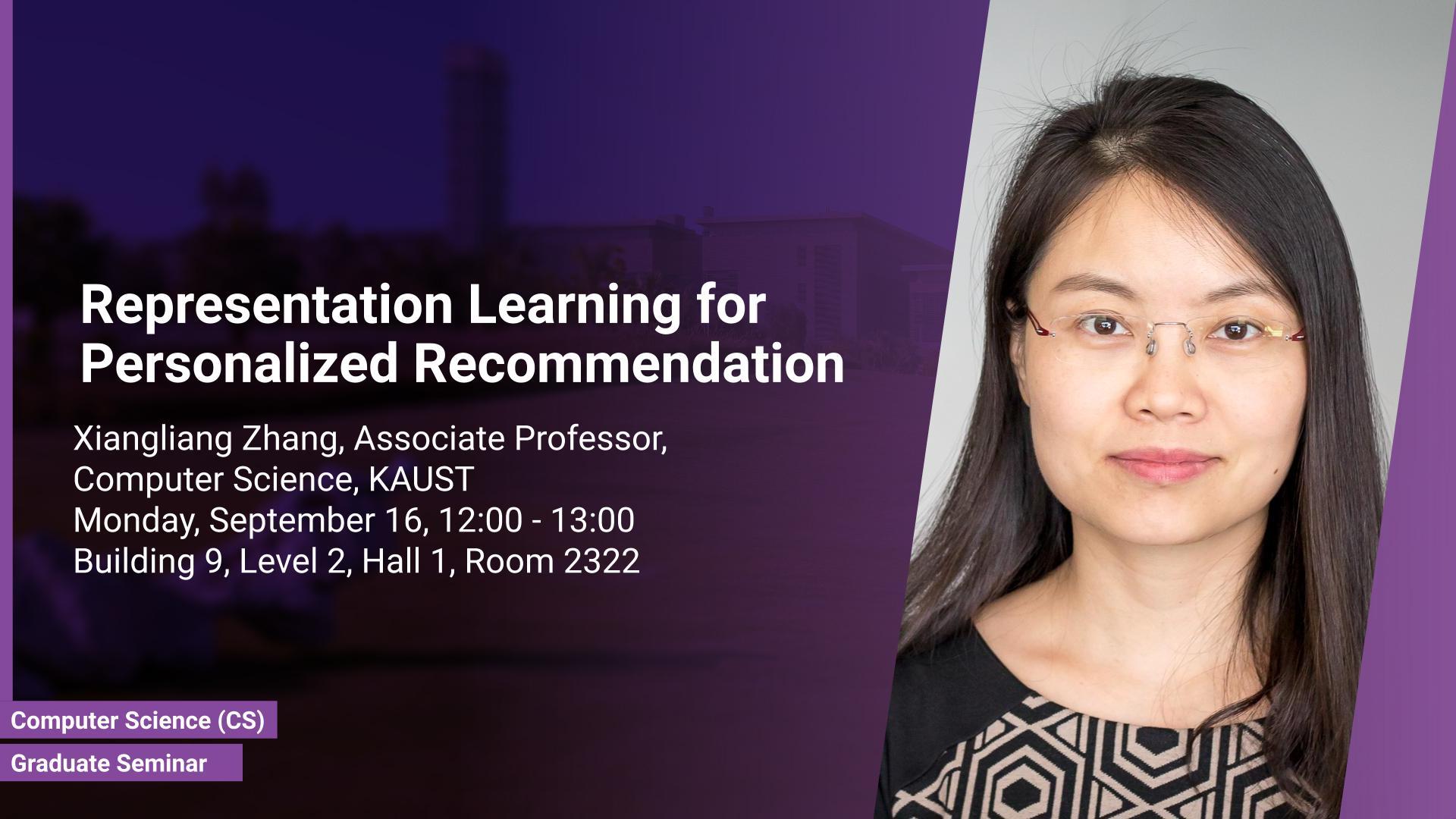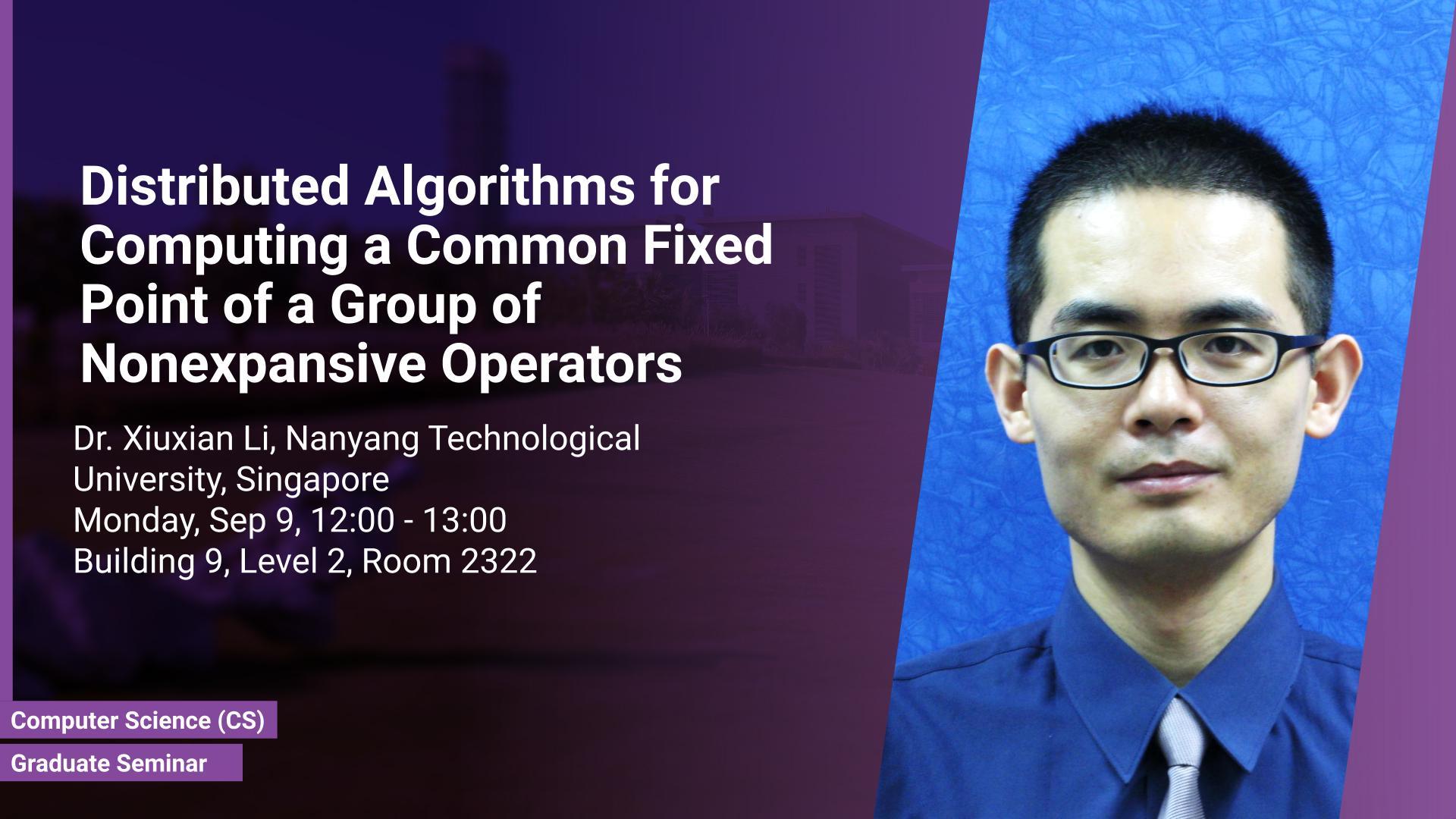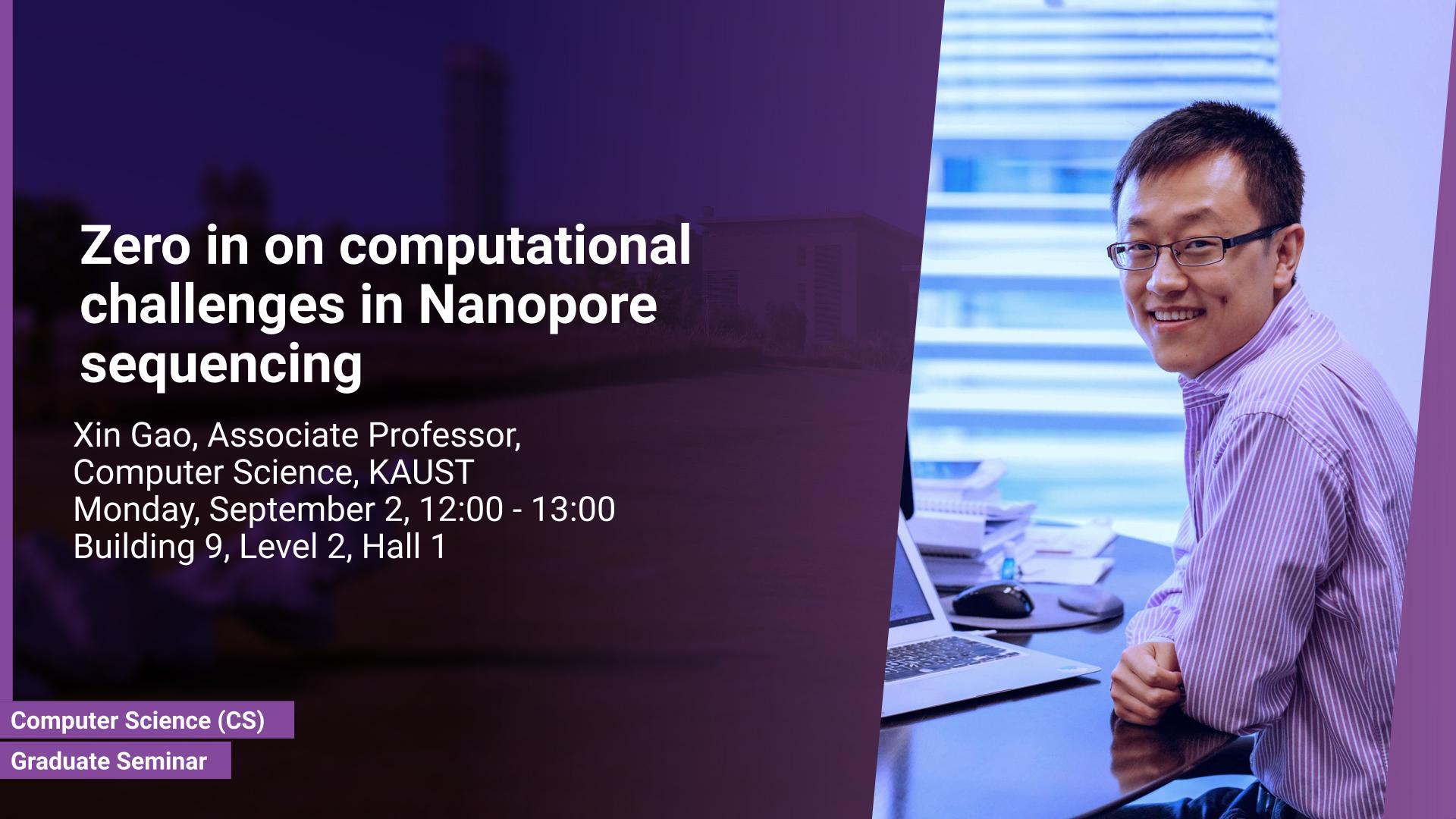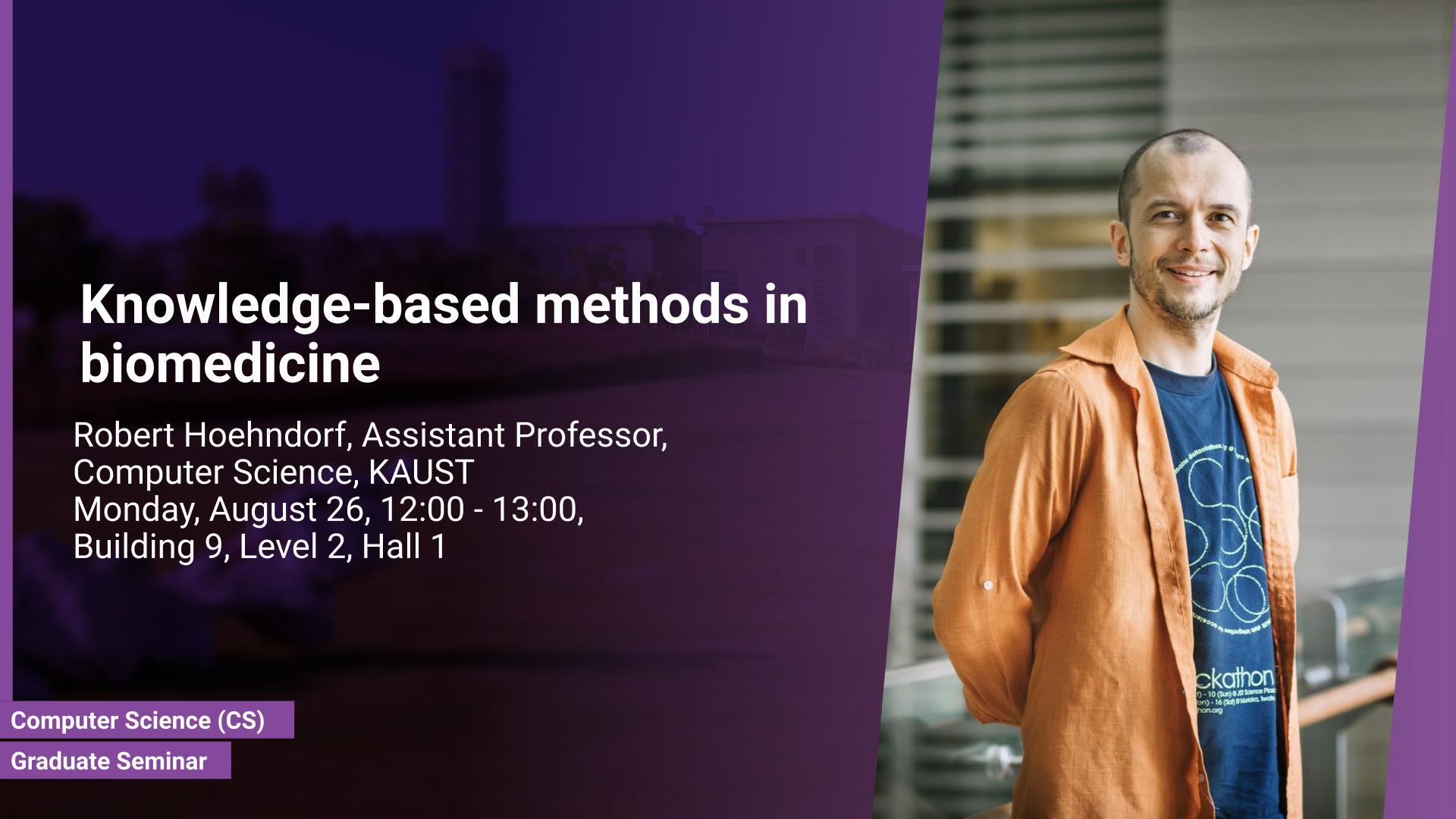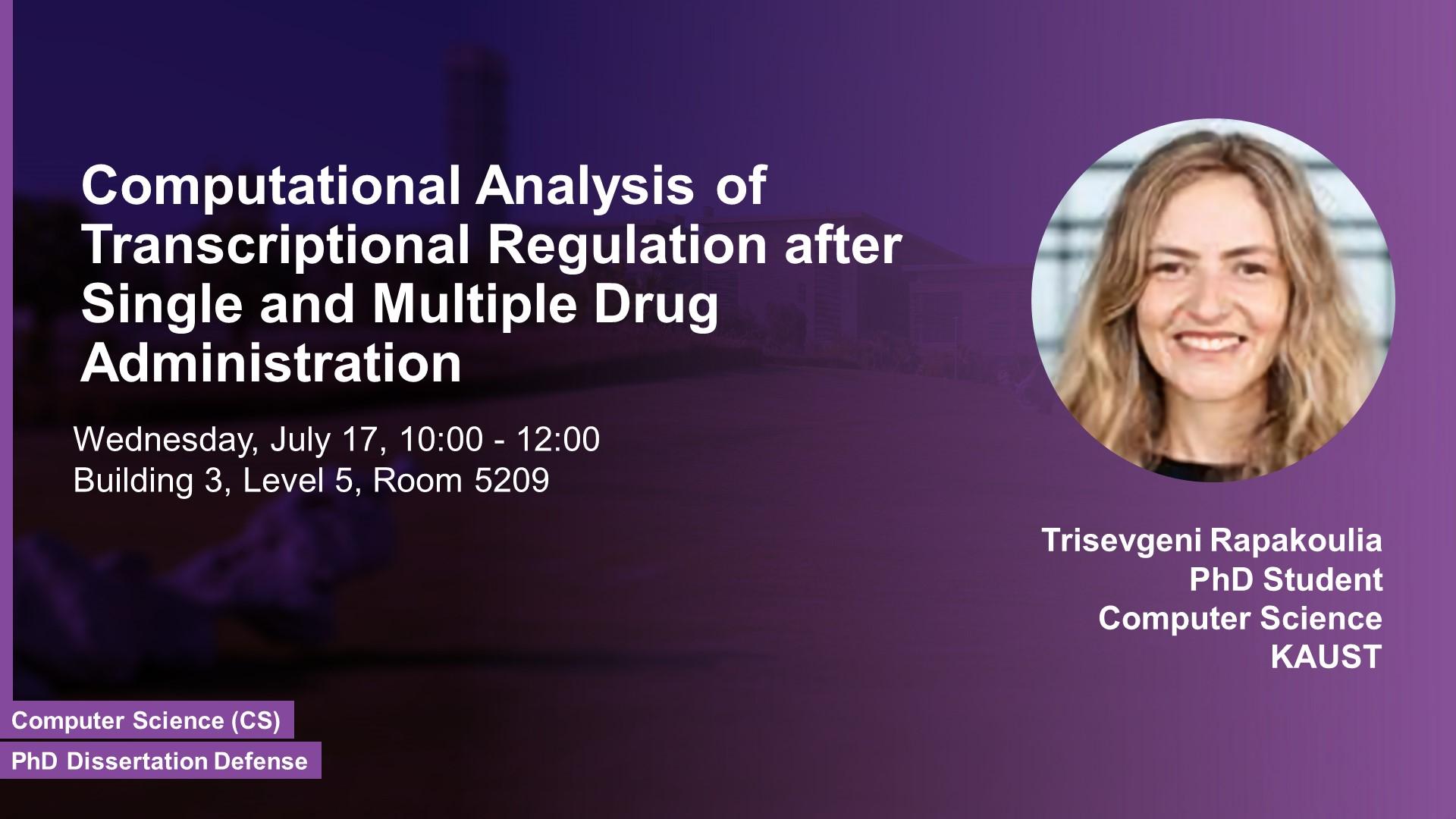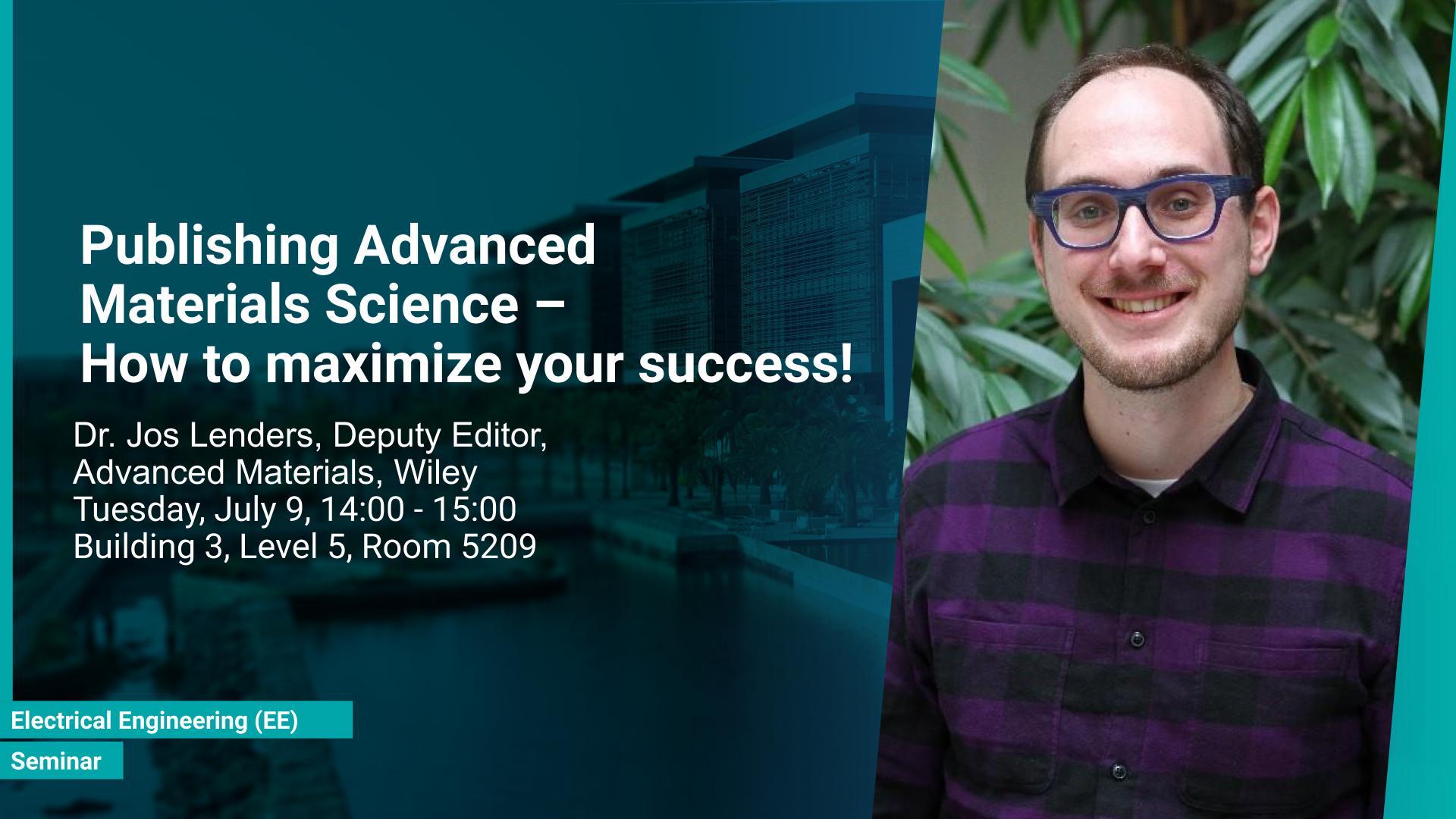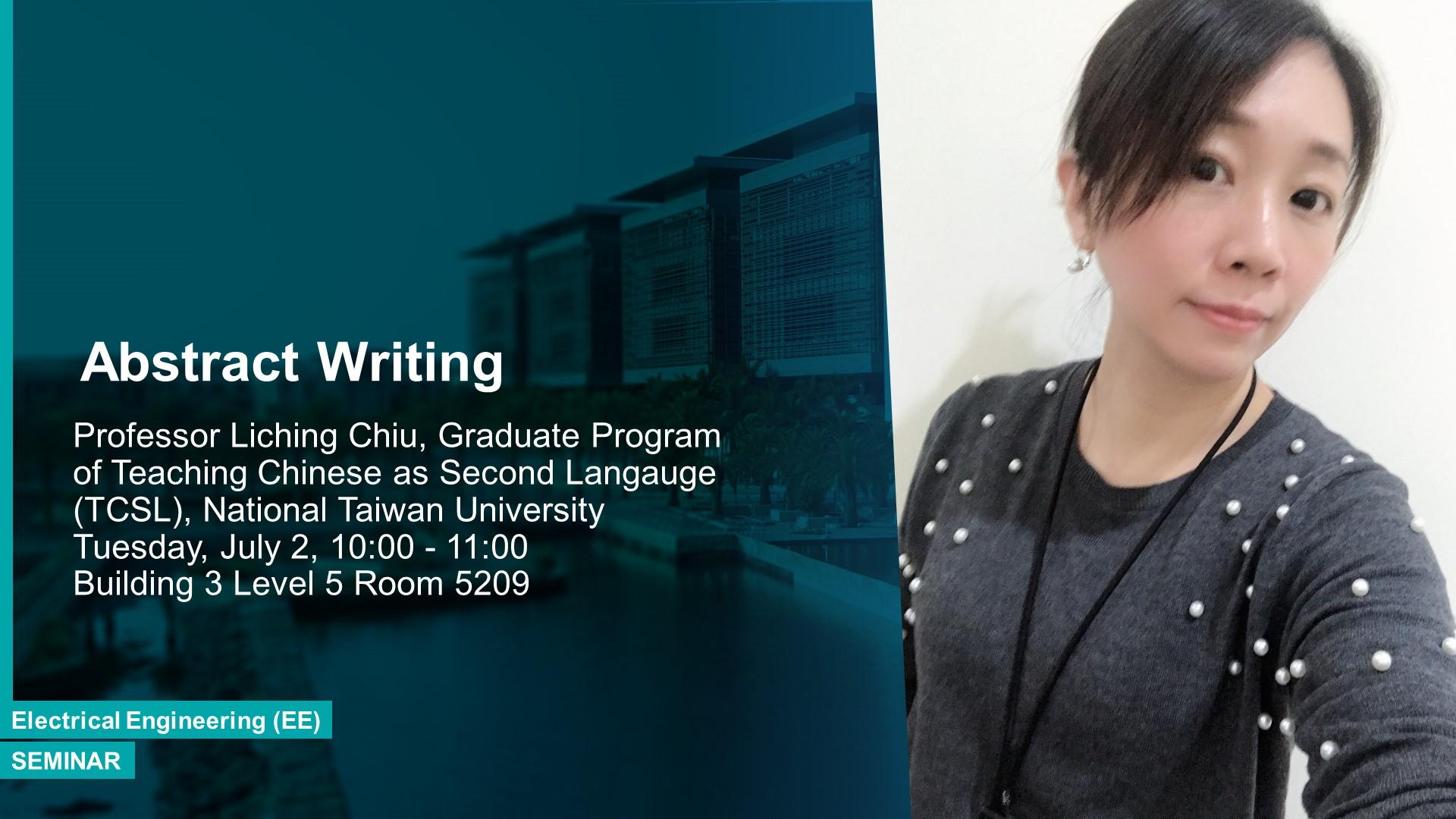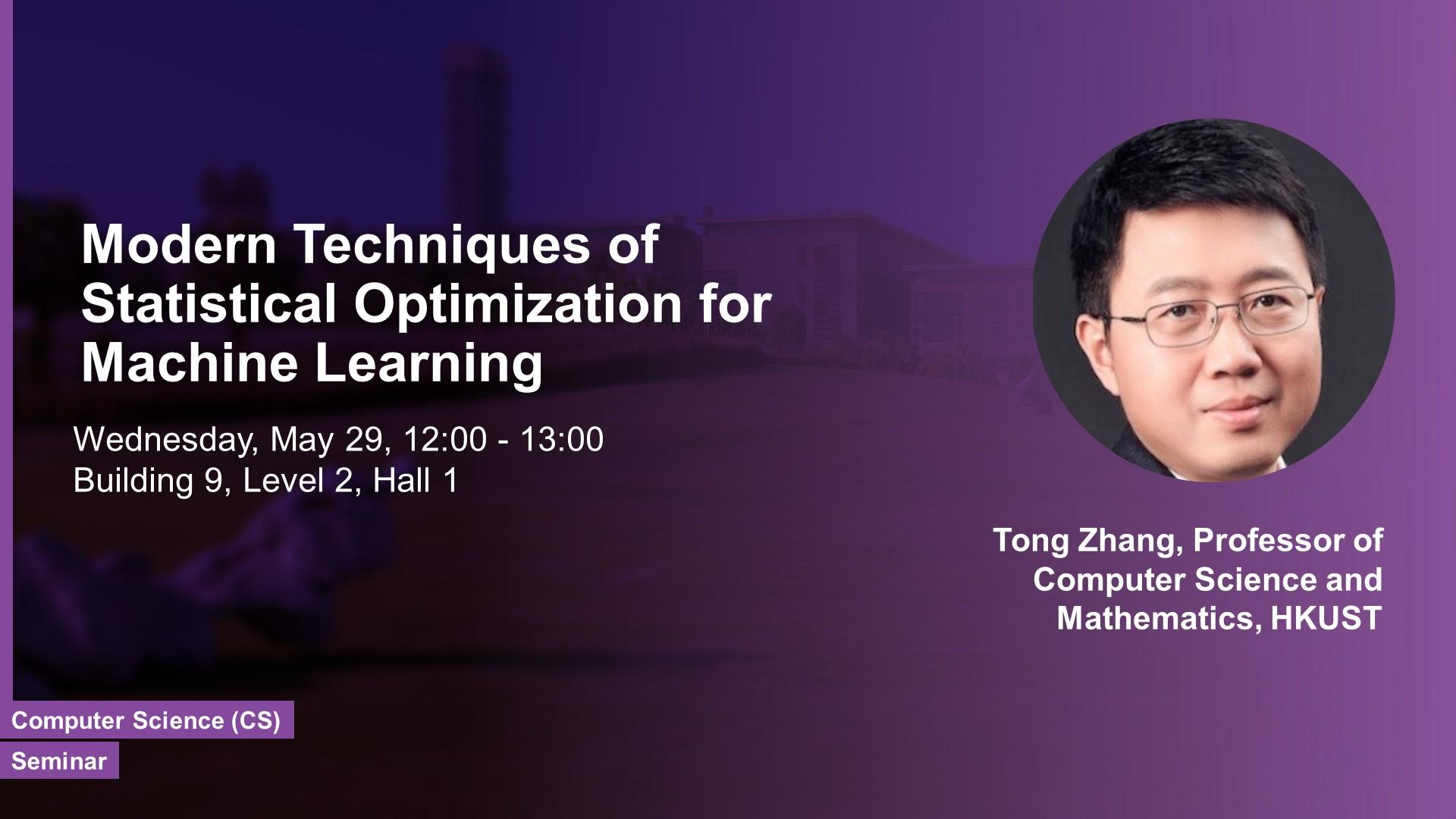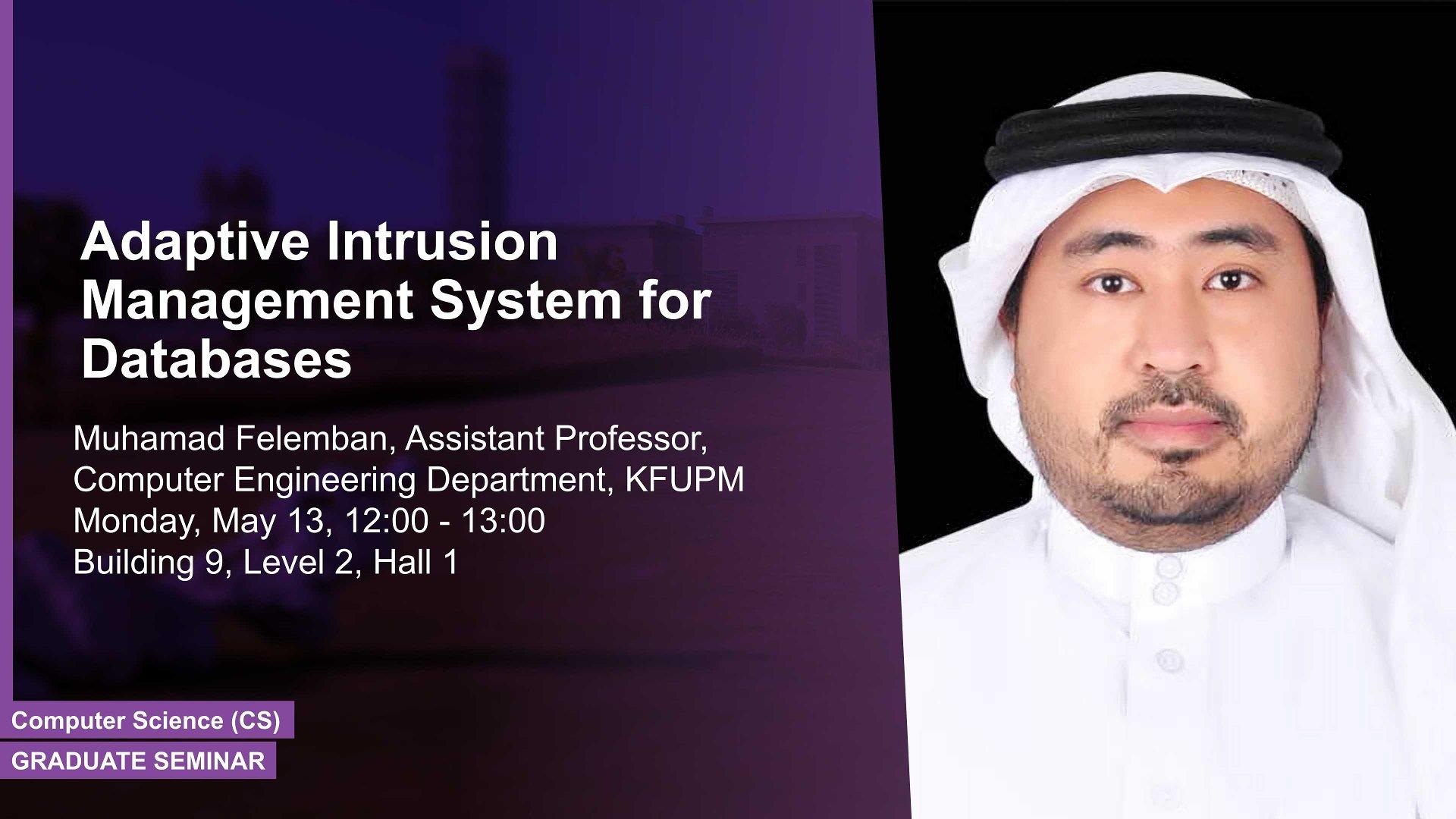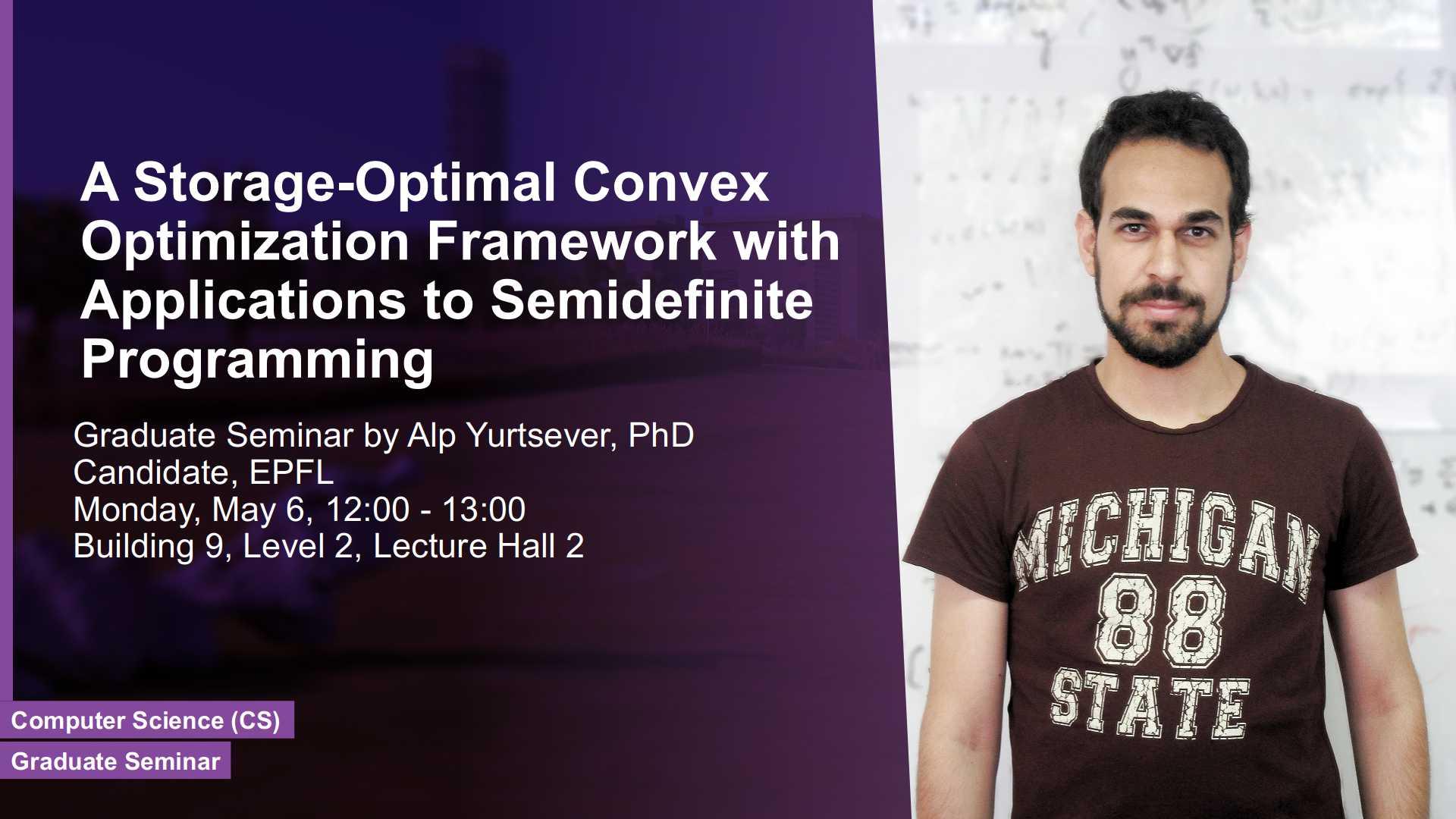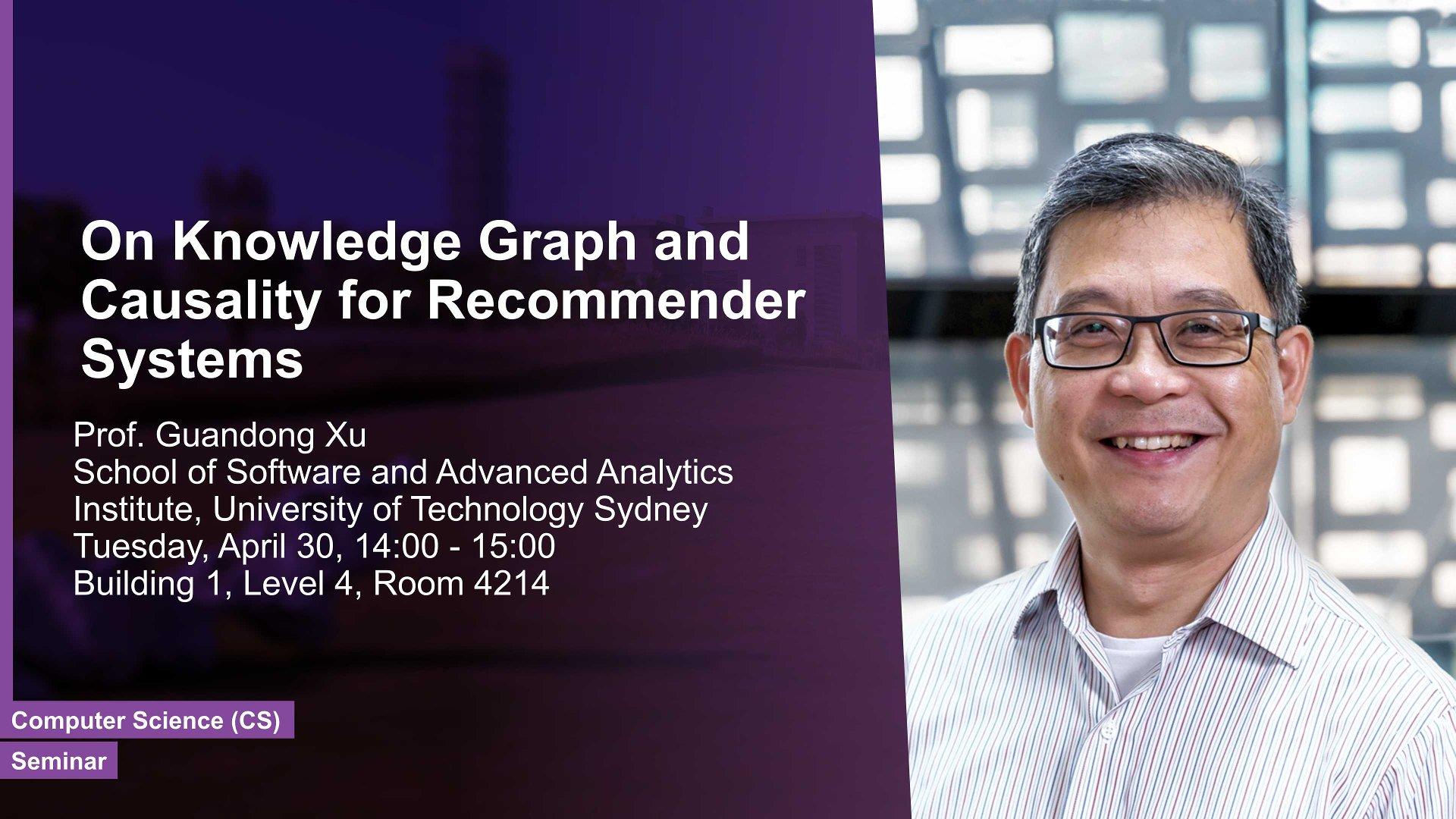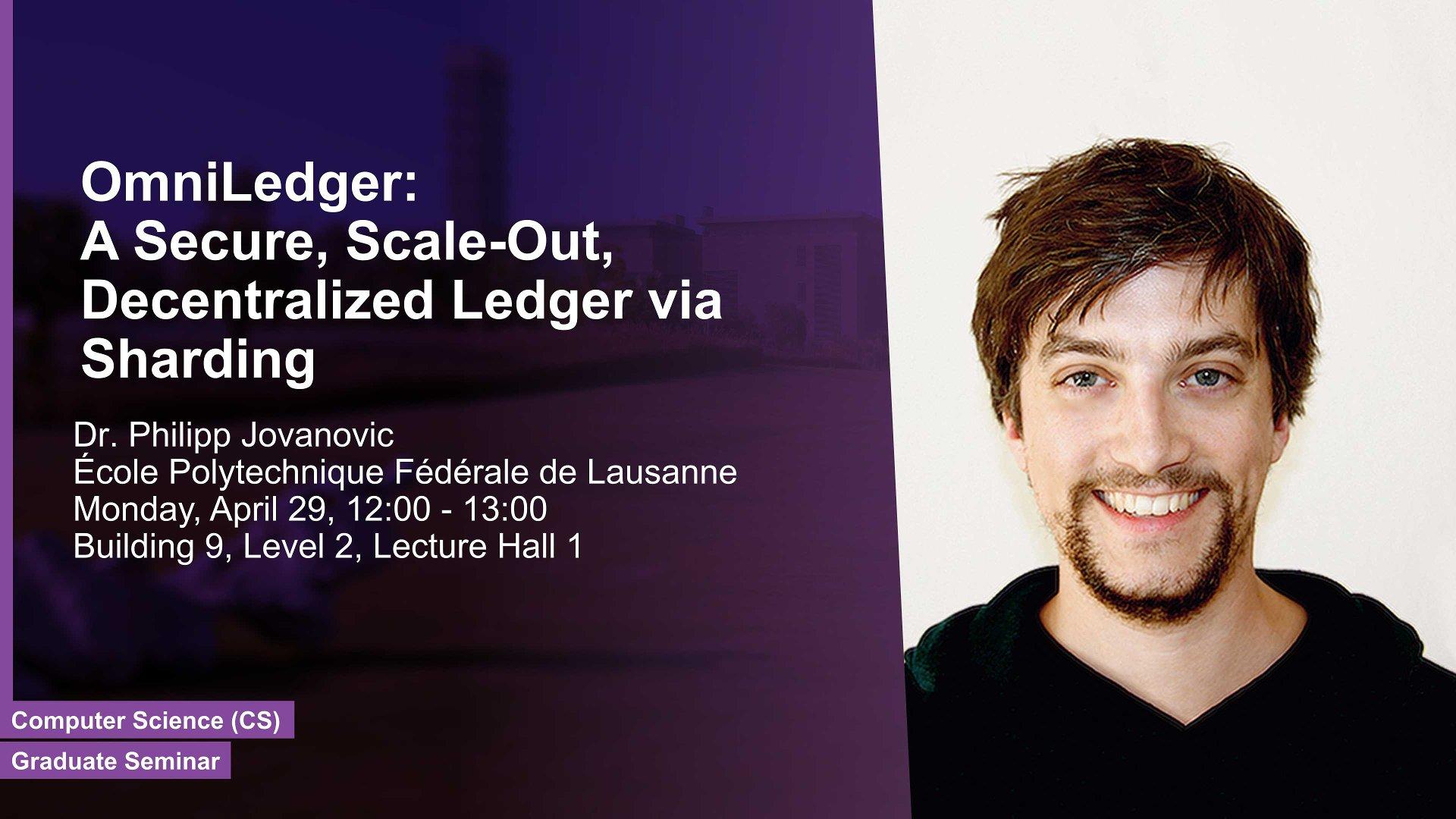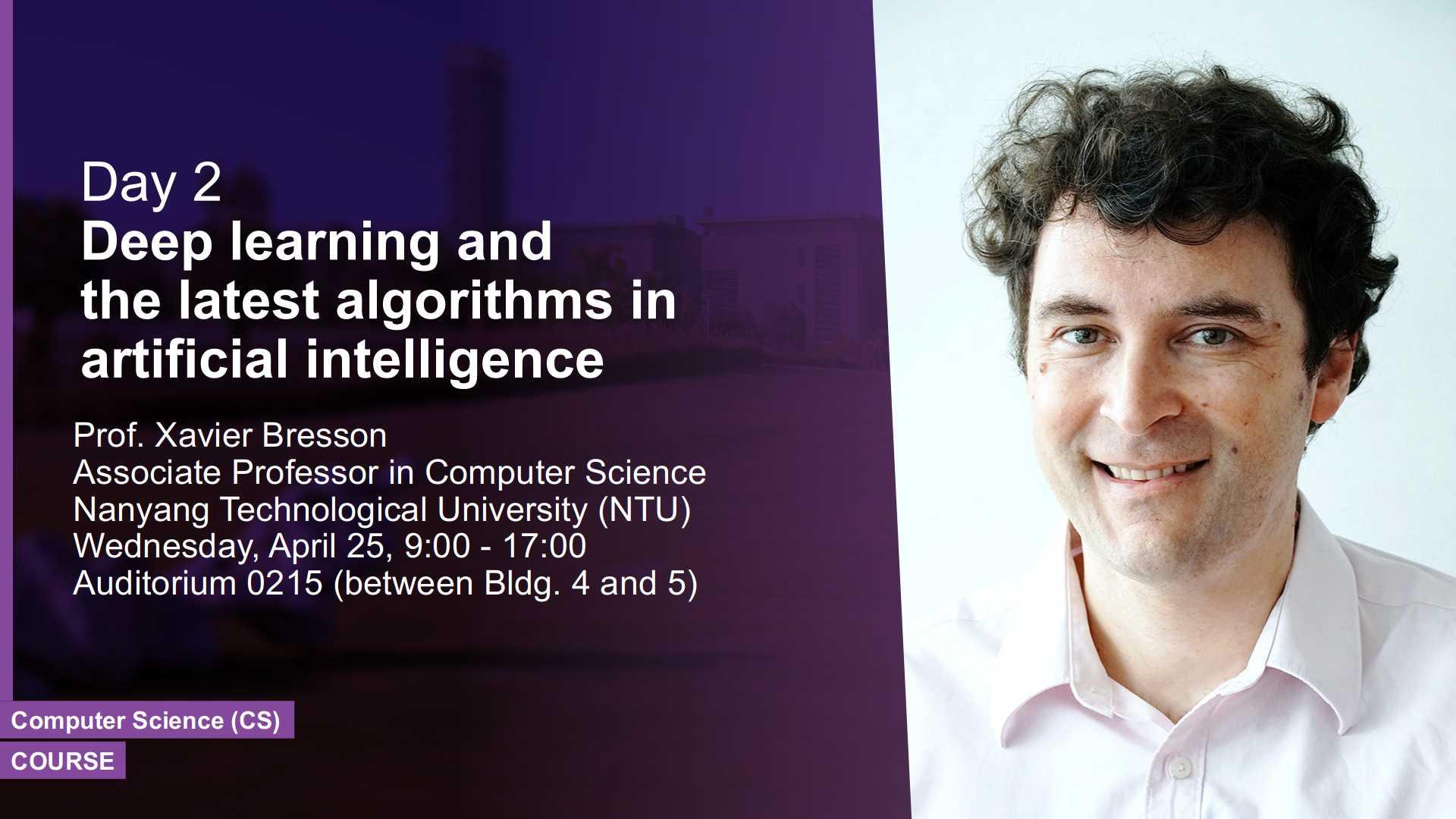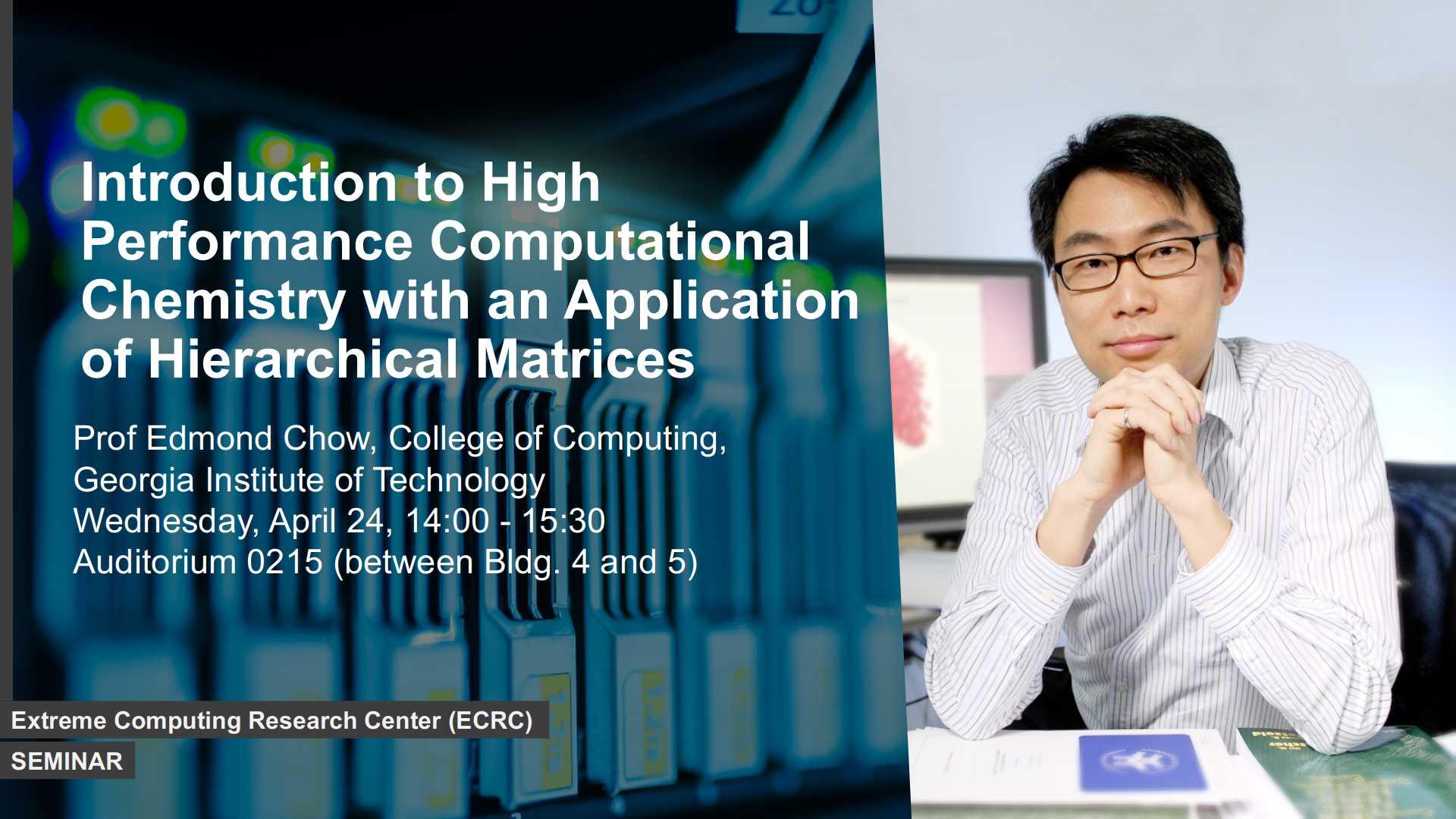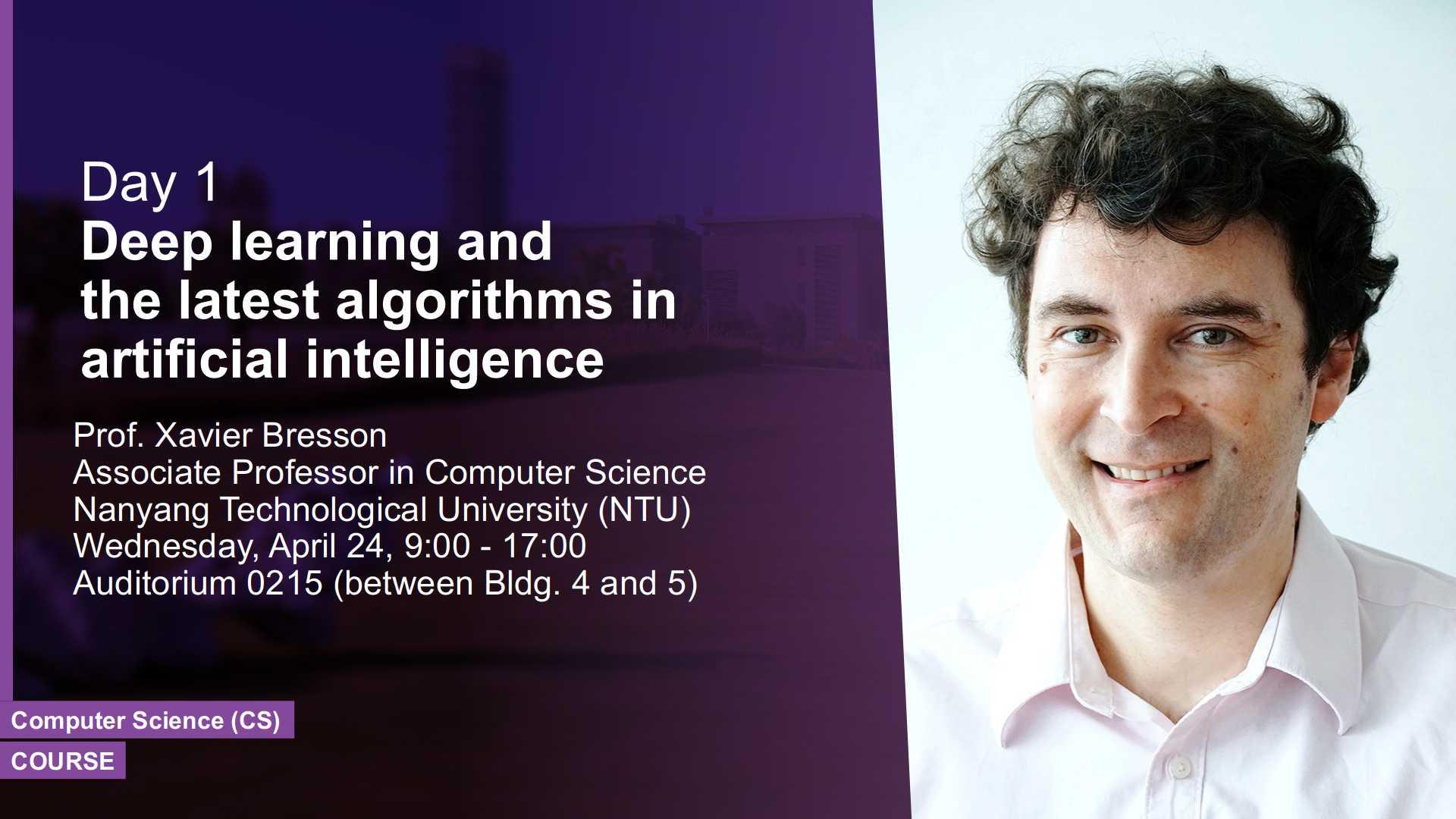Pieter Barendrecht, PhD Student, Computer Science, University of Groningen, The Netherlands
Thursday, October 24, 2019, 14:00
- 15:00
Building 1, Level 4, Room 4214
Abstract
There are many intriguing aspects a
Dr. Sumayah Alrwais, Assistant Professor, King Saud University, Riyadh, KSA
Monday, October 21, 2019, 12:00
- 13:00
Building 9, Level 2, Hall 1, Room 2322
Contact Person
In this talk, Sumayah will survey a number of malicious hosting infrastructures for different services and approaches to detecting them. Among them are works on an emerging trend of Bulletproof hosting services reselling infrastructure from lower-end service providers, use of residential proxy as a service to avoid server-side blocking and DNS based hosting infrastructure.
Prof. Paulo Esteves-Veríssimo, University of Luxembourg, SnT, CritiX
Thursday, October 17, 2019, 11:00
- 12:00
Building 9, Level 3, Room 3223
Contact Person
This talk will try to clarify some misconceptions about what digital health (DH) is, and what it should not be.
Prof. Paulo Esteves-Veríssimo, University of Luxembourg, SnT, CritiX
Wednesday, October 16, 2019, 12:00
- 13:00
Building 9, Level 2, Hall 2, Room 2325
Contact Person
Computing and communications infrastructures have become commodities that transact huge quantities of data and are pervasively interconnected, inside countries, and worldwide. Modern societies largely depend on them.
Professor,
Computer Science
Monday, October 14, 2019, 12:00
- 13:00
Building 9, Level 2, Hall 1, Room 2322
Contact Person
Existing RDF engines are designed for specific hardware architectures; porting to a different architecture (e.g., GPUs) entails enormous implementation effort. We explore sparse matrix algebra as an alternative for designing a portable, scalable and efficient RDF engine.
Dr. Timo Ropinski, Professor, Visual Computing, Ulm University, Germany
Monday, October 07, 2019, 12:00
- 13:00
Building 9, Level 2, Hall 1, Room 2322
Contact Person
Abstract
In this talk, I will present our recent advances in deep learning to synthesize and analy
Dr. Yunhai Wang, Professor, Computer Science, Shandong University, China
Wednesday, October 02, 2019, 12:00
- 13:00
Building 9, Level 2, Hall 2, Room 2325
Contact Person
Abstract
By providing visual representations of data, visualization can
Dr. Marc Dacier, Chair of the Digital Security department and a full Professor at Eurecom, France
Monday, September 30, 2019, 12:00
- 13:00
Building 9, Level 2, Hall 1, Room 2322
Contact Person
Abstract
It is well known that malware sprea
Dr. Ciril Bohak, Postdoctoral Researcher, Faculty of Computer and Information Science, University of Ljubljana, Slovenia
Wednesday, September 25, 2019, 13:00
- 14:00
Building 1, Level 2, VCC Lecture Room
Contact Person
Abstract
Our ongoing research on the reconstruction of aerial point cloud data includes reconstruc
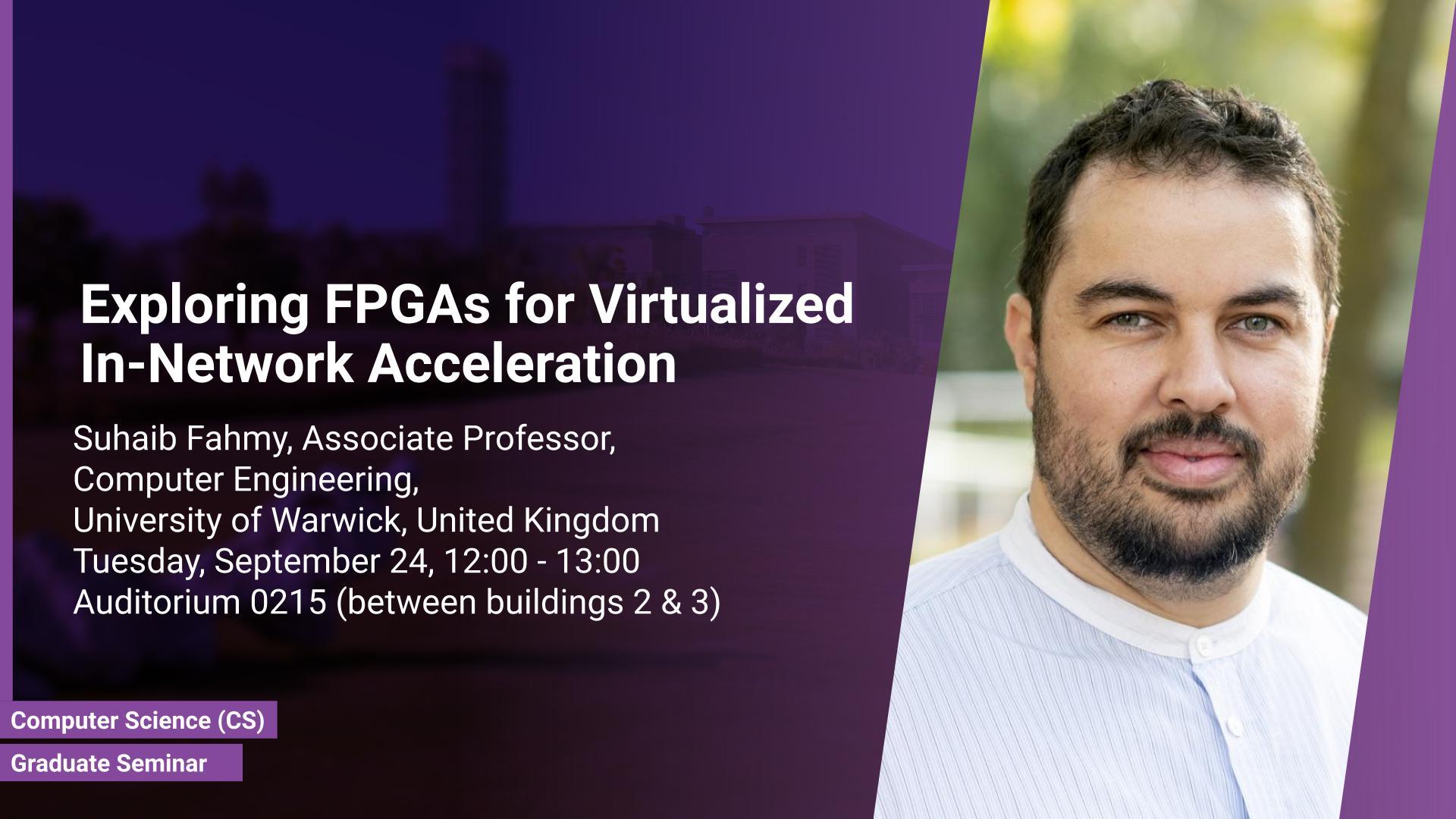
Dr. Suhaib Fahmy, Associate Professor, Computer Engineering, University of Warwick, UK
Tuesday, September 24, 2019, 12:00
- 13:00
Auditorium 0215 (between Buildings 2 & 3)
Contact Person
Abstract
With increasing connectivity and re
Prof. Xiangliang Zhang
Monday, September 16, 2019, 12:00
- 13:00
Building 9, Level 2, Hall 1, Room 2322
Contact Person
Abstract
Recommender systems have
Dr. Xiuxian Li, School of Electrical and Electronic Engineering, Nanyang Technological University, Singapore
Monday, September 09, 2019, 12:00
- 13:00
Building 9, Level 2, Hall 1
Contact Person
This talk is concerned with the problem of seeking a common fixed point for a finite collection of nonexpansive operators over time-varying multi-agent networks in real Hilbert spaces. Each operator is assumed to be only privately and approximately known to each individual agent, and all agents need to cooperate to solve this problem by local communications over time-varying networks. To handle this problem, inspired by the centralized inexact Krasnosel’ski˘ı-Mann (IKM) iteration, two distributed algorithms, called distributed inexact Krasnosel’ski˘ı-Mann (D-IKM) iteration and distributed inexact block-coordinate Krasnosel’ski˘ı-Mann (D-IBKM) iteration, are proposed. It is shown that the two algorithms can converge weakly to a common fixed point of the family of nonexpansive operators.
Program Chair,
Computer Science
Monday, September 02, 2019, 12:00
- 13:00
Building 9, Level 2, Hall 1
Contact Person
In this talk, I will first give an overview of the research activities in Structural and Functional Bioinformatics Group (http://sfb.kaust.edu.sa). I will then focus on our efforts on developing computational methods to tackle key open problems in Nanopore sequencing. In particular, I will introduce our recent works on developing a collection of computational methods to decode raw electrical current signal sequences into DNA sequences, to simulate raw signals of Nanopore, and to efficiently and accurately align electrical current signal sequences with DNA sequences. Then, I will further introduce their applications in clinical and environmental fields.
Interim Associate Director,
Computational Bioscience Research Center
Monday, August 26, 2019, 12:00
- 13:00
Building 9, Level 2, Hall 1
Contact Person
The life sciences have invested significant resources in the development and application of semantic technologies to make research data accessible and interlinked, and to enable the integration and analysis of data. Utilizing the semantics associated with research data in data analysis approaches is often challenging. Now, novel methods are becoming available that combine symbolic methods and statistical methods in Artificial Intelligence. In my talk, I will describe how to apply knowledge-based methods for the analysis of biological and biomedical data, in particular identification of gene-disease associations and drug targets.
PhD Degree,
Computer Science
Wednesday, July 17, 2019, 10:00
- 12:00
Building 3, Level 5, Room 5209
Contact Person
With the advances in transcriptomic analysis, the monitoring of genome-wide gene expression provides a powerful approach for determining the action of drugs. In this thesis, we analyzed the transcriptional responses of cells treated with drugs either alone or in combinations to explore their effects in two different applications: breast cancer therapy and cell conversion.
Dr. Jos Lenders, Deputy Editor, Advanced Materials, Wiley
Tuesday, July 09, 2019, 14:00
- 15:00
B3 L5 Room 5209
Materials science is a multidisciplinary field of research with many different scientists and engineers having various backgrounds active in it. The literature landscape consequently is populated currently by a wide range of journals which greatly differ in purpose, scope, quality, and readership. Jos Lenders, Deputy Editor of Advanced Materials, Advanced Functional Materials, and Advanced Optical Materials, will track some of the most important developments and trends in the research field and the Advanced journals program. Last year, Advanced Materials reached an Impact Factor of 21.95 and received over 8,300 submissions – and Advanced Functional Materials over 9,200. Only around 15% of all those papers made it to publication in the journal, and this rate is similar for all other Advanced journals. So, what do editors do to select the very best papers, and what can authors do to optimize their chances of having their manuscripts accepted?
Prof. Liching Chiu, Graduate Program of Teaching Chinese as a Second Language (TCSL), National Taiwan University
Tuesday, July 02, 2019, 10:00
- 11:00
B3 L5 Room 5209
This series of lectures guide students to the preparation and analysis of a well-organized abstract. We will discuss the proper language (tense, voice, and person) for abstract writing, and learn how to meet the purposes of different abstracts. Finally, students will have a chance to compose and evaluate their writing. Topics: Overview of abstract writing; Conference abstract journal abstract; Organization of an abstract; Language conventions of abstract writing; Disciplinary abstract analysis; Frequent mistakes of abstract writing.
Tong Zhang, Professor of Computer Science and Mathematics, HKUST
Wednesday, May 29, 2019, 12:00
- 13:00
Building 9, Hall 1
Contact Person
Many problems in machine learning rely on statistics and optimization. To solve these problems, new techniques are needed. I will show some of these new techniques through selected machine learning problems I have recently worked on, such as nonconvex stochastic optimization, distributed training, adversarial attack, and generative models.
Muhamad Felemban, Assistant Professor, Computer Engineering Department, KFUPM
Monday, May 13, 2019, 12:00
- 13:00
B9 L2 Hall 1
Contact Person
With the growing cyber-security threats to governmental and organizational infrastructures, the need to develop high resilient systems that preserve the security and privacy of data is becoming increasingly important. Although there is a large body of work on security and privacy countermeasures, cyber-attacks still persist. A prominent type of such attacks is intrusion attack that aims at data tampering, which can impair the availability and the integrity of data.
Alp Yurtsever, PhD Candidate, EPFL
Monday, May 06, 2019, 12:00
- 13:00
B9 L2 Hall 2
Contact Person
With the ever-growing data sizes along with the increasing complexity of the modern problem formulations, there is a recent trend where heuristic approaches with unverifiable assumptions are overtaking more rigorous, conventional optimization methods at the expense of robustness. This trend can be overturned when we exploit dimensionality reduction at the core of optimization. I contend that even the classical convex optimization did not reach yet its limits of scalability.
Prof. Guandong Xu, School of Software and Advanced Analytics Institute, University of Technology Sydney
Tuesday, April 30, 2019, 14:00
- 15:00
B1 L4 Room 4214
Contact Person
Knowledge Graph (KG) is a large-scale semantic network consisting of entities/concepts as well as the semantic relationships among them, which could be considered as a concise version of Semantic Web. Recently KG is emerging as a hot topic of knowledge discovery and management under artificial intelligence, facilitating semantic computing. Causal relation is a reflection of user behaviours with backend intention, which is related another emerging hot topic – recommendation interpretability. This talk will cover the recent research progresses in these two areas and highlight some open research challenges in recommender systems.
Dr Philipp Jovanovic, École Polytechnique Fédérale de Lausanne (EPFL)
Monday, April 29, 2019, 12:00
- 13:00
B9 L2 Lecture Hall 1
Contact Person
Designing a secure permissionless distributed ledger that performs on par with centralized payment processors such as Visa is challenging. Most existing distributed ledgers are unable to "scale-out" -- growing total processing capacity with number of participants -- and those that do compromise security or decentralization. This work presents OmniLedger, the first scale-out distributed ledger that can preserve long-term security under permissionless operation. OmniLedger ensures strong correctness and security by using a bias-resistant public randomness protocol to choose large statistically representative shards to process transactions, and by introducing an efficient cross-shard commit protocol to handle transactions affecting multiple shards atomically.
Prof. Xavier Bresson, Data Science and AI Research Centre at Nanyang Technological University (NTU) Singapore
Thursday, April 25, 2019, 09:00
- 17:00
Auditorium 0215 (between Bldg. 4 and 5)
Contact Person
The ML Hub offers a 2-day short course on deep learning and the latest algorithms in artificial intelligence. The course will be given by Professor Xavier Bresson from the Nanyang Technological University (NTU) in Singapore, who is a leading researcher in the field of deep learning. The course will include the theory of deep learning techniques as well as practical exercises. Prerequisite knowledge: Basic knowledge of linear algebra (e.g. matrix multiplication) and script programming (e.g. Python, Matlab, R) are needed. The coding will be done in Python. Note, that this course has limited seating and filling registration form does not guarantee acceptance. If you are selected, you will receive a confirmation e-mail.
Associate Professor Edmond Chow, School of Computational Science and Engineering, College of Computing, Georgia Institute of Technology
Wednesday, April 24, 2019, 14:00
- 15:30
BW Bldg 2 and 3 Auditorium 0215
Contact Person
This talk begins with an introduction to quantum chemistry for HPC researchers. We discuss the main computational kernels, how their performance is limited by various bottlenecks, and algorithms and implementations that improve performance. One particular kernel is the calculation of the Coulomb matrix. Whereas the fast multipole method (FMM) can be used to rapidly compute the Coulomb potential for sets of point charges, continuous variants of FMM were developed in the 1990s for sets of charge distributions that arise in quantum chemistry.
Prof. Xavier Bresson, Data Science and AI Research Centre at Nanyang Technological University (NTU) Singapore
Wednesday, April 24, 2019, 09:00
- 17:00
Auditorium 0215 (between Bldg. 4 and 5)
Contact Person
The ML Hub offers a 2-day short course on deep learning and the latest algorithms in artificial intelligence. The course will be given by Professor Xavier Bresson from the Nanyang Technological University (NTU) in Singapore, who is a leading researcher in the field of deep learning. The course will include the theory of deep learning techniques as well as practical exercises. Prerequisite knowledge: Basic knowledge of linear algebra (e.g. matrix multiplication) and script programming (e.g. Python, Matlab, R) are needed. The coding will be done in Python. Note, that this course has limited seating and filling registration form does not guarantee acceptance. If you are selected, you will receive a confirmation e-mail.
